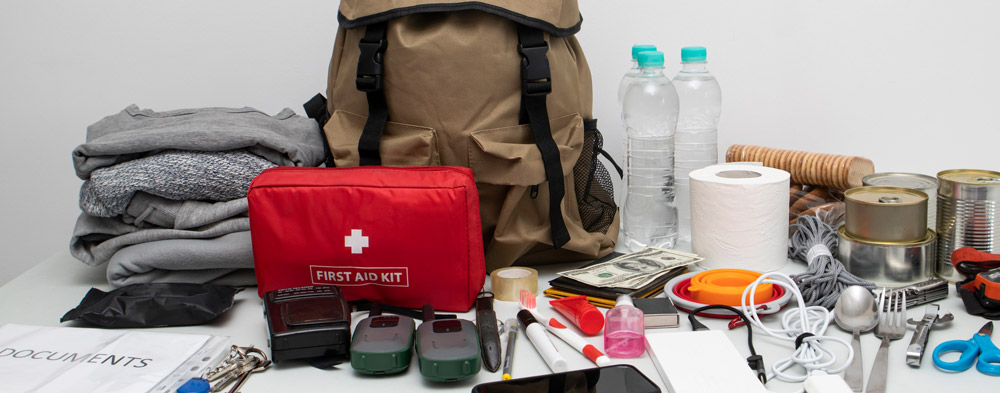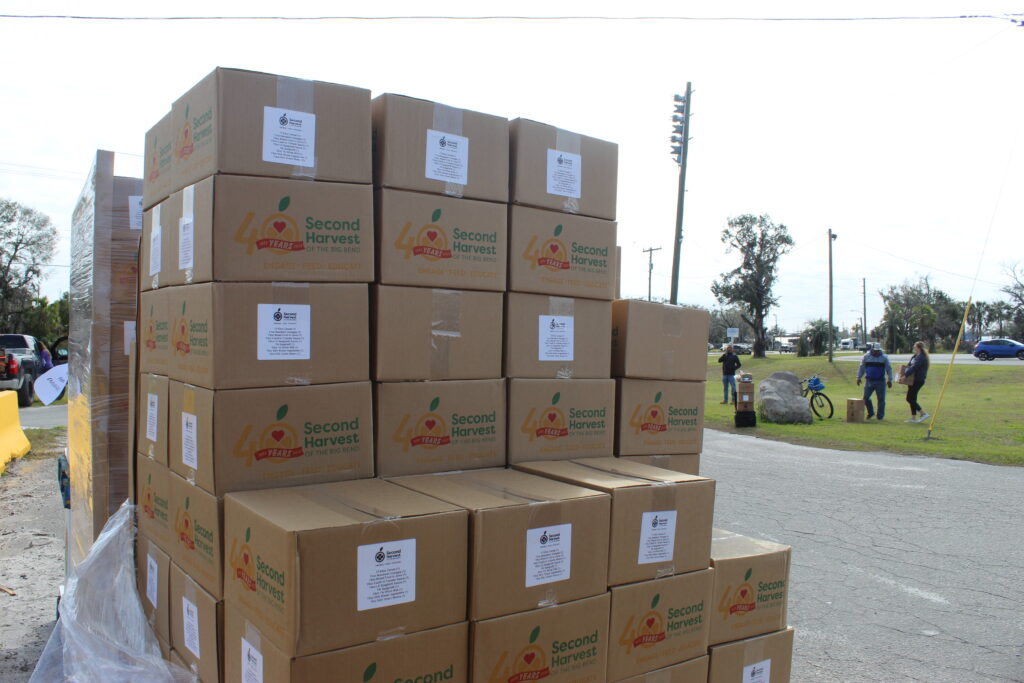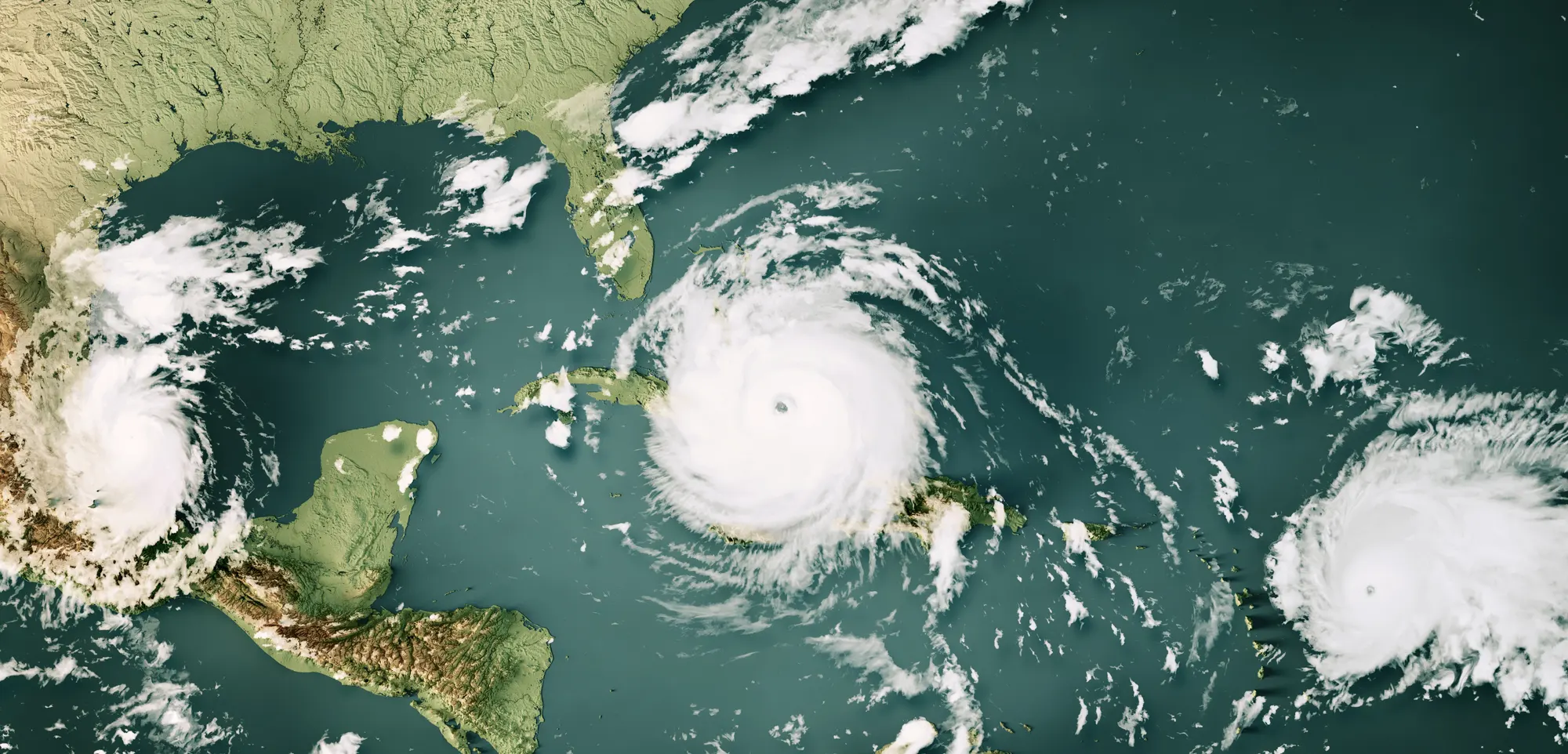As the Sunshine State, Florida is known for its beautiful beaches and vibrant summertime. However, our proximity to the water makes us susceptible to hurricanes and other tropical disasters. Being prepared is incredibly important, and at Second Harvest of the Big Bend, we’re committed to providing information and assistance to keep our community safe during this season.
In 2018, Second Harvest of the Big Bend distributed over 40,000 bottles of water and 170,000 meals to families affected by Hurricane Michael. Last year, after Hurricane Ian devastated South Florida, we responded by packing thousands of relief packs for affected families. We play a pivotal role in disaster preparation and response both in and out of our 16-county service area.
The official date range for this year’s hurricane season is June 1 to November 30. NOAA forecasters with the National Weather Service predict chances of a regular season this year, meaning we can expect to see about 12 to 17 storms. Although the state is no stranger to the devastation these storms can bring, preparedness is critical to protecting lives and property.
Here are tips to get prepared for a safe hurricane season:

1
Create a Plan: With the potential for major storms, developing an emergency plan is crucial. Know your evacuation zone and routes, and ensure all family members know the plan. Share emergency contacts and information with local family members and close friends. If you cannot evacuate, identify the safest areas in your home and secure your property and home as well as possible.
2
Stock Up: In cases of a power outage or lockdown, prepare a well-stocked emergency kit. Include essential items such as non-perishable food, water, a first aid kit, batteries, flashlights, and a supply of cash. Portable chargers, important documents, and candles are also helpful to have on hand. Remember to include supplies for your pets as well.
3
Stay Informed: Stay updated with the latest weather forecasts and advisories from the National Hurricane Center, the Federal Emergency Management Agency (FEMA), and local authorities. Sign up for emergency alerts to stay current on incoming storms and evacuation notices.
4
Join Forces: In an emergency, it’s easy to become overwhelmed and forgetful. Having close relationships with local family members and friends provides you with a support system in a time of need. Sharing plans and tips with neighbors allows you to gain additional insight a helping hand should you need one.

Here is a list of potential items for your Hurricane Preparedness Kit!
- Water: At least one gallon per person for at least three days
- Important Documents: Copies of insurance policies, identification, and blank account records in a waterproof container.
- Non-perishable Food: A three day supply of canned and dry goods.
- Tools and Supplies: Flashlights, extra batteries, a multi-tool, and duct tape.
- First Aid Kit: Bandages, antiseptic, tweezers, other basic first aid supplies.
- Sanitation Items: Moist towelettes, and garbage bags
- Personal Hygiene Items: Toothbrush, toothpaste, soap, and other personal care items.
- Medications: A weeks supply of prescription and necessary medical supplies.
- Cash: Small bills, as ATMs may not be operational
- Clothing: Extra clothing and bedding
- Communication Devices: A battery-powered or hand crank radio, a cell phone with chargers and back up battery
As a part of the Big Bend COAD (Community Organizations Active in Disasters), Second Harvest of the Big Bend partners with the Feeding Florida and the Florida Department of Emergency Management to store and distribute emergency supplies like food and water both before and after a disaster.
Join us in keeping the Big Bend region safe this hurricane season by being prepared and donating to disaster relief, so we’re able to help our neighbors when they need it most.
Here are few more helpful resources to save for the future:
